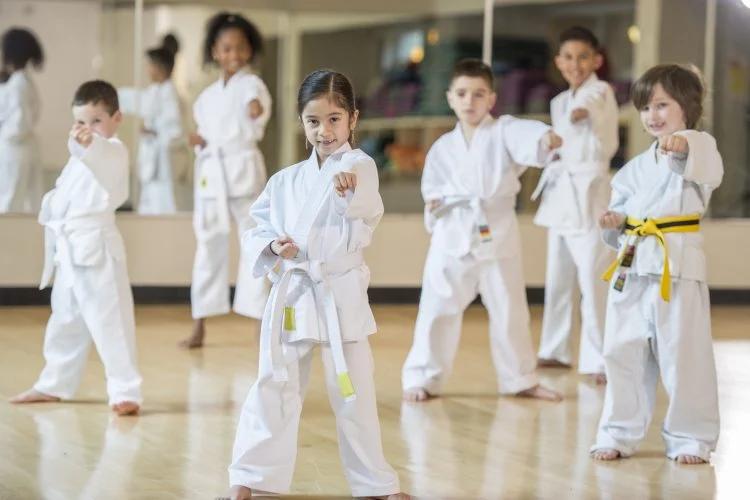In today’s fast-paced world filled with distractions, parents are constantly looking for ways to help their children improve focus and perform better in school. One growing solution that bridges both physical activity and mental development is martial arts training. National Karate & Martial Arts Naperville has been at the forefront of providing programs that do more than teach self-defense—they help shape well-rounded, disciplined students.
As academic expectations increase and attention spans shorten due to digital devices, many children are struggling to stay organized, attentive, and engaged in the classroom. Parents often turn to tutoring and educational apps to help, but martial arts offers a lesser-known, yet highly effective, complement to traditional learning. Through structured routines and goal-setting, martial arts trains the mind just as much as the body.
What makes martial arts uniquely effective is its emphasis on discipline, mental clarity, and respect—values that translate directly into better academic habits. More than just an after-school activity, martial arts is becoming a strategic tool for parents who want their children to succeed both inside and outside the classroom.
The Link Between Physical Activity and Academic Performance
Multiple studies have shown that regular physical activity can enhance brain function in children. When kids are physically active, their bodies release endorphins and improve blood circulation, which boosts cognitive function. Martial arts, in particular, offers an intense yet structured workout that sharpens both the body and the brain.
Unlike unstructured forms of play or exercise, martial arts involves following precise instructions, remembering sequences, and performing complex motor skills. These actions require children to engage their memory, focus on details, and respond to cues—all of which are cognitive tasks that mirror those found in a classroom setting.
Instructors at National Karate & Martial Arts Naperville integrate mental exercises such as visualization, breathing techniques, and timed drills that teach children how to remain calm and focused under pressure. These skills help students concentrate better during school tests and remain attentive during long classroom lessons.
Building Focus and Discipline Through Repetition
One of the most valuable benefits of martial arts is the development of focus and discipline in kids. Each class follows a predictable routine that includes warming up, learning new techniques, and practicing existing ones. This structure helps children develop habits around attention and task completion—two essential academic skills.
Children are taught to listen carefully, wait their turn, and execute moves with precision. These repeated routines instill a strong sense of self-regulation and patience. Over time, students learn to avoid distractions and stay committed to the task at hand, whether that’s perfecting a form or completing a homework assignment.
Martial arts for better concentration is not just a promise—it’s a process. With each belt level comes greater responsibility, and children begin to understand the value of consistent effort. These lessons help them learn that academic success, much like earning a new belt, requires dedication and perseverance.
Goal-Setting and Motivation Translate to Schoolwork
One reason martial arts and academics are so closely linked is the shared importance of goal-setting. In martial arts, students work toward the next belt or skill level. In school, they strive for good grades or personal improvement. Learning how to set goals, break them into smaller milestones, and work consistently toward them is a transferable skill.
After school programs in Naperville that include martial arts are uniquely positioned to help children internalize this sense of progress. Rather than relying on external rewards, kids are taught to find motivation in their own achievements. Earning a stripe or belt isn’t just about the color—it’s about the effort and consistency behind it.
This sense of self-motivation carries into the classroom. Students who have experienced the structured, measurable progress of martial arts often take the same approach to their academic tasks. They begin to understand how small, repeated actions—like studying regularly or turning in homework on time—lead to big outcomes.
Improving Behavior and Reducing Classroom Disruptions
Classroom success isn’t just about grades—it’s also about behavior. Many teachers report that students who participate in martial arts demonstrate improved conduct, fewer outbursts, and better peer relationships. That’s because martial arts places a high value on respect, self-control, and emotional awareness.
In martial arts classes, students are expected to bow, listen respectfully, and show courtesy to instructors and fellow students. These behaviors become second nature over time, making children more likely to treat teachers and classmates with the same level of respect.
Moreover, martial arts training includes lessons on how to handle frustration and conflict without acting out. Kids learn to manage emotions in healthy ways, reducing impulsive behavior in the classroom. When students feel more in control of their actions, they are more likely to engage in learning without disruptions.
Creating a Balanced After-School Routine
Parents often struggle to find after-school programs that offer both structure and personal growth. While sports and clubs can be beneficial, martial arts adds a unique layer of character development and mental training. For children who need an outlet for energy and stress after a long day at school, martial arts provides a healthy and productive solution.
After school programs in Naperville that include martial arts help establish a routine that balances physical activity with personal development. Parents appreciate that their children are not only staying active but are also gaining skills that benefit their academic and social lives.
National Karate & Martial Arts Naperville offers a well-rounded experience that aligns with many families’ values. Classes are structured, goal-oriented, and designed to support the whole child—not just their ability to punch or kick, but their ability to think, focus, and thrive.
The Long-Term Academic Advantages of Martial Arts
Children who practice martial arts over several years often show long-term improvements in their academic lives. These students tend to have higher levels of time management, personal responsibility, and a stronger sense of self-worth—all of which contribute to academic achievement.
Even as students grow into middle school and high school, the habits formed through martial arts continue to serve them. They understand the importance of routine, they know how to set and pursue goals, and they carry a quiet confidence that allows them to tackle challenges with maturity.
Parents who invest in martial arts training during the elementary years are often surprised by how deeply it shapes their child’s learning style and attitude. It’s not just an extracurricular activity—it’s an educational foundation that pays dividends far beyond the dojo.
Conclusion
The relationship between martial arts and academics is stronger than many people realize. Through structured routines, consistent goal-setting, and the development of self-discipline, martial arts helps children become more focused, organized, and successful students. It builds character and confidence while reinforcing the skills that matter most in the classroom.
For families in search of meaningful after-school programs in Naperville, martial arts provides a unique combination of physical activity and academic support. Programs like those at National Karate & Martial Arts Naperville are designed not only to teach self-defense but to help children become better learners and more focused individuals.
In a world filled with distractions and challenges, martial arts stands out as a reliable, time-tested path to academic growth. With the right instruction and support, children can unlock their full potential—both in school and in life.
Read More From Techbullion



































